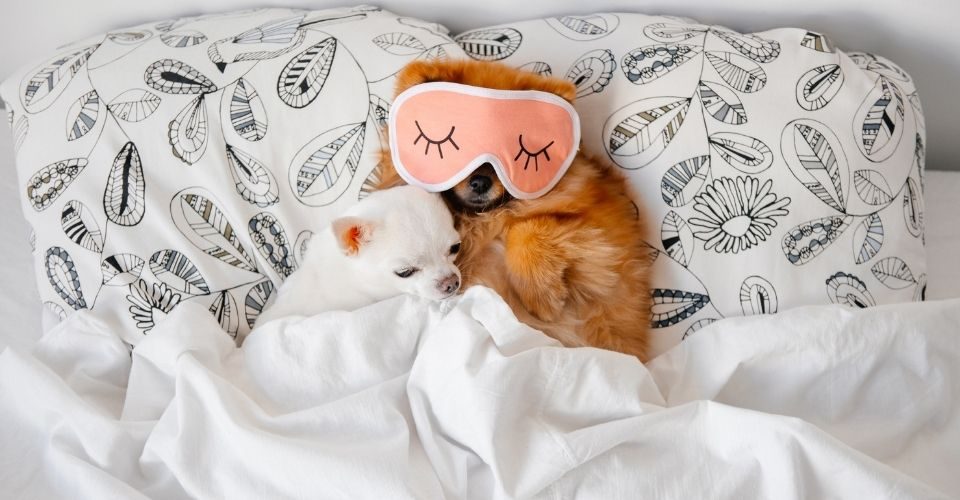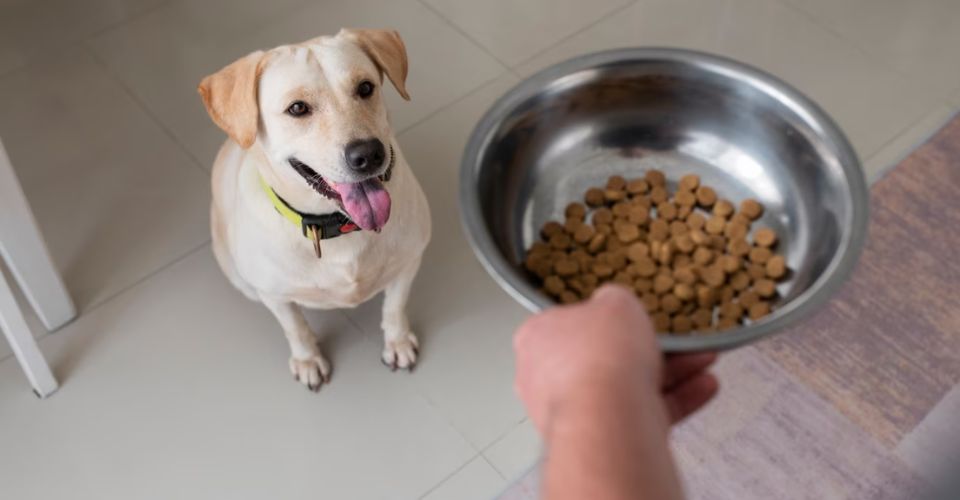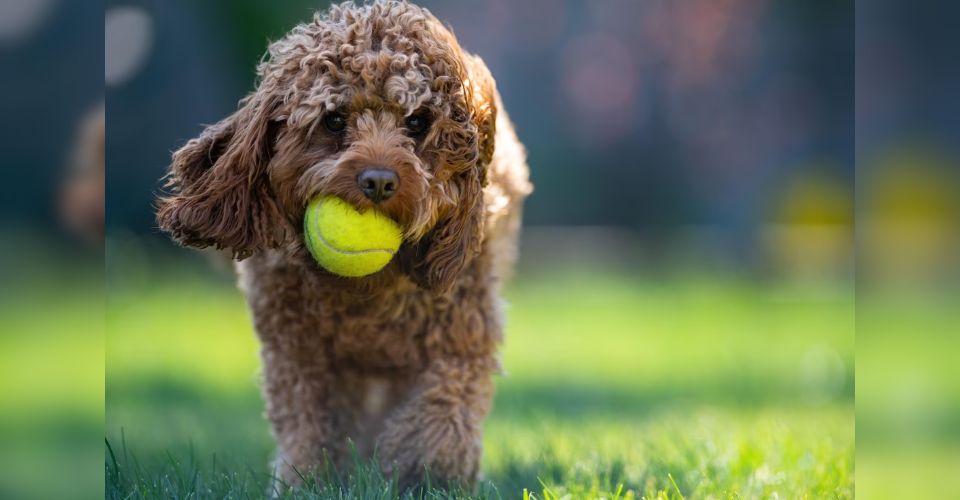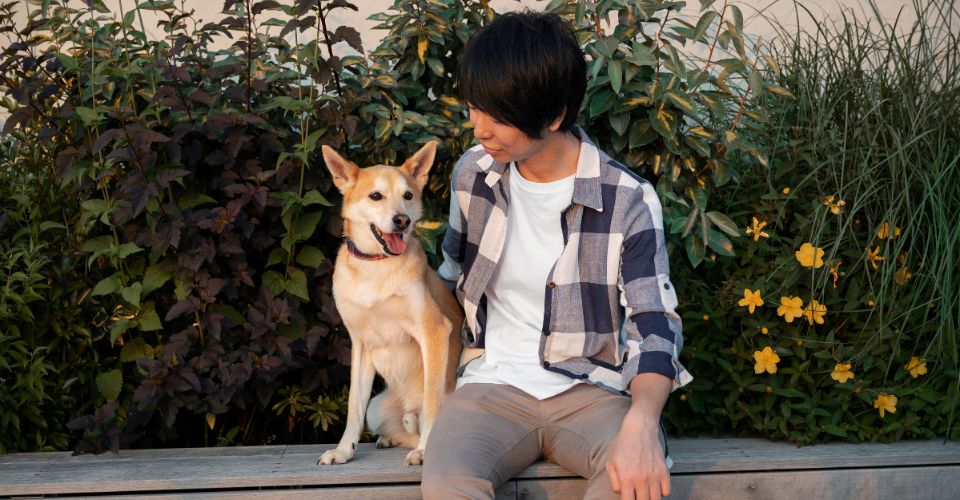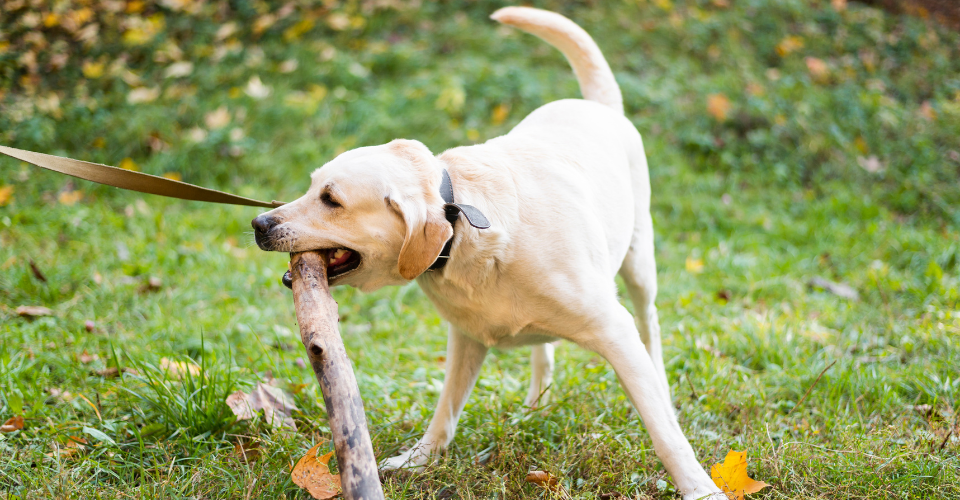Newborn puppies seem to have two jobs: Eating and sleeping, as if moving into this world tired them out. While it’s heartwarming to watch your little buddy sleep, seeing them always lying on couches, you may wonder, do puppies sleep a lot?
Yes, all puppies sleep a lot, and this is totally normal. The reason behind puppies sleeping that long is that they have low energy levels and that low energy is utilized by the body for growing the organs. So our pups are not left up with much power to be awake, play, and goof around.
Do Puppies Sleep a Lot?
Yes. Newborn puppies sleep a lot & wake up as they please. As said before, they have minimal energy levels and lack the ability to stand on their own; therefore, they spend their time dreaming about angels and the heavens.
As puppies grow, they get energetic and tend to play whenever they get the chance. But when they play, much of their energy gets drained quickly, and they fall asleep.
How Much Sleep Do Puppies Need?
There’s no one-size-fits-all answer to how long a puppy should sleep.
There are various factors on which this span depends, most important of which is the age of a puppy.
- Newborn puppies need more sleep, requiring up to 20 hours of sleep and spend the remaining time nursing.
- When puppies grow 8 weeks old, they sleep for approximately 18 to 20 hours a day.
- At 2 months old, a puppy sleeps up to 18 hours.
- A three-month-old puppy would still need around 15 hours.
- Whereas adult dogs sleep for 14 hours per day on average.
Here is a puppy sleep chart.
| Age | Sleep Requirement |
| Newborn | 22 hrs. |
| 8 weeks | 20 hours |
| 10 weeks | 18 – 20 hours |
| 12 weeks | 18 – 20 hours |
| 14 weeks | 18 hours |
| 16 weeks | 18 hours |
Why Puppies Sleep a Lot?
Puppies sleep a lot because Mother Nature has designed their bodies so. Most pups get fully grown by the age of 2 years, and some by the age of 1. Small- and medium-sized puppy breeds grow up quickly as compared to giant dog breeds. According to Dr. Jerry Klein, DVM and Chief Veterinary Officer at AKC, “on average, small breeds typically stop growing by the time they reach 6 to 8 months of age.” A body that grows so quickly needs plenty of rest and recuperation to optimize healthy development.
When your puppy sleeps, his body goes through a lot. His brain is busy processing every new thing that the puppy encountered today and storing it away for later use. His central nervous system, internal organs, and immune system are growing stronger. His bones and muscles are developing. And all this growth and functioning utilize all the energy your puppy gained from nursing. Thus, it’s something not to worry about if your puppy sleeps nearly 20 hours every day.
Here are some benefits of puppy sleeping a lot:
- It provides energy to the brain and body
- It contributes to the growth of a healthy immune system
- It balances appetites and digests the food
- It releases growth hormones
If you want a healthy, properly-developed, and emotionally stable puppy, you need to let the sleeping puppy rest, as it is an essential factor in all of these development processes.
Apart from the age, some other factors determining how much a puppy would sleep are as below:
1. Dog Breed
Puppies that belong to working or hunting dog groups tend to sleep a lot less than lazy dog breeds—the latter sleep more even when they are grown-ups.
Here are the top lazy dog breeds that love to sleep often.
- Shih Tzu
- Mastiff
- Basset Hound
- French Bulldog
- Pekingese
- Greyhound
- Lhasa Apso
- Cavalier King Charles Spaniel
- Saint Bernard
- Chow Chow
- Great Dane
- Cocker Spaniel
- Pug
- Great Pyrenees
- Bull Dogs
2. Stress, Anxiety, and Boredom
A puppy that has been separated from his mother and littermates at an early age goes through psychological difficulties, such as anxiety, stress, and boredom. Under stress, a puppy’s brain releases oxytocin and melatonin, because of which he sleeps too much. If your dog is stressed out or feeling anxious, you will notice that your puppy is becoming lethargic and falls asleep.
This also happens when a puppy moves to a new house. Helping the puppy by giving him a routine jazzed up with love, bonding, and affection can improve your puppy’s mental and physical health.
3. Less Calorie Intake
Smaller the size, tinier the stomach, lesser the calorie requirement, and lower the energy levels; our puppies fit this criterion altogether. However, when their calorie requirement isn’t met, they get lazy and tired. To fulfill their calorie intake, you must know how much to feed.
According to the Animal Medical Center of Chicago, daily calorie requirements for puppies should be:
| Body Weight in Pounds | Puppy up to 4 Months | Puppy Over 4 Months |
| 1 | 115 | 77 |
| 2 | 194 | 129 |
| 3 | 264 | 176 |
| 4 | 330 | 220 |
| 5 | 390 | 260 |
| 6 | 447 | 298 |
| 7 | 501 | 334 |
| 8 | 552 | 368 |
| 9 | 603 | 402 |
| 10 | 654 | 436 |
| 11 | 702 | 468 |
How to Get Your Puppy to Sleep?
- Give your puppy a set place to sleep. Either an inviting crate or a comfy puppy bed.
- Make the space quiet.
- Exercise them to burn off any excess energy he may have.
- Create a sleep routine—and plan the times for training, potty, and meals.
Puppy Sleeping Schedule
Finding the right puppy sleeping schedule to train your puppy accordingly can be tough. Most schedules that you find online may not work for your puppy—every pup has a different nature.
However, here are some schedules that have been used by puppy owners and that have consistently worked.
Puppy Sleep Schedule 1:
| Time | Task |
| 6 am | Wake up |
| 6:30 am | Cuddles and Snuggles |
| 8 to 9 am | High-Energy Playing (if your dog belongs to active dog breeds) |
| 9 to 12 am | Nap |
| 12 am to 1 pm | Lunch |
| 1 to 3 pm | Playtime |
| 5 to 6 pm | Dinner Time |
| 6 to 7 pm | Grooming |
| 10 pm | Bedtime |
If this doesn’t comply with your routine, we suggest you make a puppy sleep schedule in such a way that fulfills your puppy’s sleep requirement. Otherwise, his health can deteriorate—they will stay malnourished and frequently get mood swings and behavioral issues.
So, do puppies sleep a lot? Yes. Should you worry? No, it is completely normal. Puppies sleeping a lot is a sign that they are healthy.

